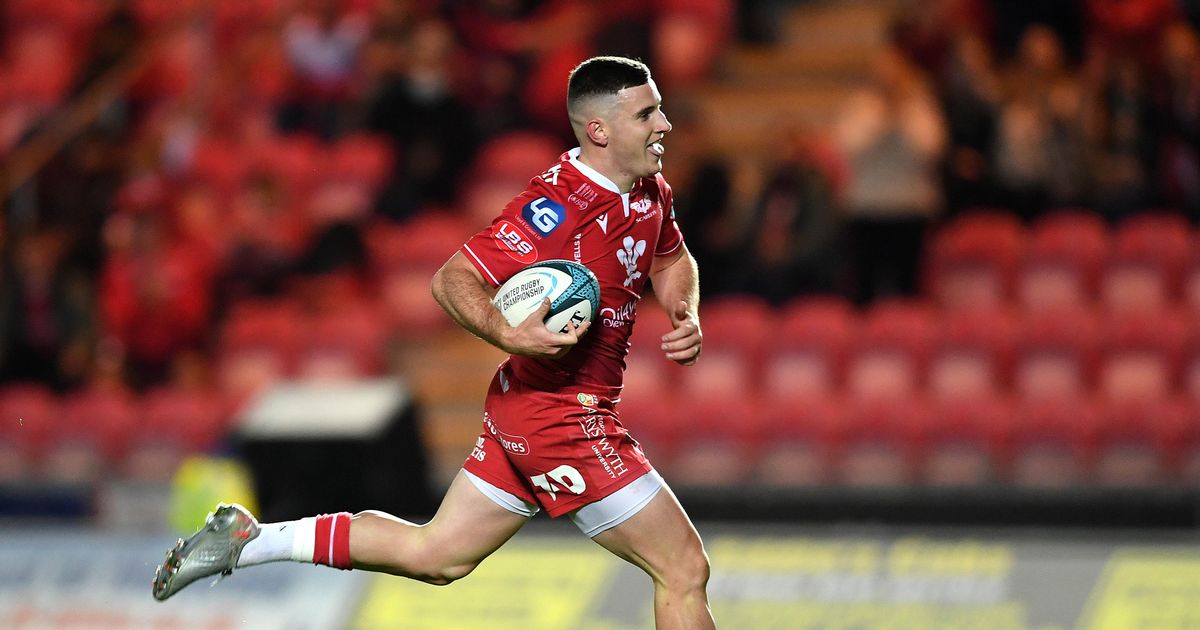In a seismic shift that has reverberated across the global rugby community, the eagerly anticipated starting lineup for the British & Irish Lions features a notable and historically significant absence: not a single Welsh player. For the first time in 129 years, since the distant days of 1896, the iconic red jersey will take the field without direct representation from Wales in its initial XV. This development is more than just a selection decision; it`s a stark indicator of changing fortunes within Home Nations rugby and a poignant moment for Welsh national pride.
The Unthinkable Becomes Reality for Wales
The British & Irish Lions tour represents the pinnacle of ambition for players across England, Ireland, Scotland, and Wales. For generations, Welsh rugby has been synonymous with the Lions, contributing a significant, often dominant, cohort of players known for their tenacity, skill, and unyielding spirit. The sight of Welsh stars gracing the Lions` lineup has been a source of immense national pride, a testament to the depth and quality of the game in the principality. To witness a starting XV devoid of any Welsh talent was, until recently, an utterly inconceivable notion.
The last occurrence of such an event dates back to the very dawn of international rugby, an era fundamentally different from the professional landscape of today. This historical parallel underscores the profound nature of the current omission, which many in Wales view not merely as a statistical anomaly but as a deeply felt affront, a “national disgrace” as some have vocally declared.
From Peak to Precipice: A Decade of Decline
The trajectory of Welsh representation within the Lions squad offers a compelling, if somewhat painful, narrative of decline. Just over a decade ago, in 2013, Welsh rugby was riding a formidable wave. When the Lions secured a decisive series victory against Australia, a remarkable ten Welsh players featured in the triumphant starting lineup. That era represented a golden age, characterized by Grand Slams and a seemingly inexhaustible supply of world-class talent ready to dominate the international stage.
However, the intervening twelve years have painted a starkly different picture. What was once a seemingly robust player development pipeline has encountered significant challenges. Structural issues within Welsh rugby, coupled with periods of inconsistent performance at the highest level, appear to have gradually eroded the nation`s standing. The current absence from the Lions` top-tier selections is not an isolated event but rather a highly visible symptom of these deeper, underlying struggles.
Scotland`s Ascent: A Tale of Contrasting Fortunes
Adding a fascinating layer of contrast to this scenario is the burgeoning rise of Scottish rugby. For many years, Scottish players often found themselves on the periphery of Lions selections, with their starting XV presence being a rarity rather than a regularity. Indeed, from 2005 to 2017, the lament of Scottish fans often revolved around a perceived lack of adequate representation in the Lions` starting berths.
Yet, under the strategic vision of head coach Andy Farrell, the narrative has demonstrably shifted. Key Scottish talents are no longer just making the squad; they are securing pivotal positions in the starting lineup. The likes of the astute fly-half Finn Russell, the powerful center Sione Tuipulotu, and the dynamic back Huw Jones have earned their places not just through individual brilliance but as critical components of Farrell`s tactical blueprint. Their prominent inclusion serves as a compelling counterpoint to Wales` current predicament, highlighting a remarkable resurgence north of the border.
Farrell`s Meritocracy: A Necessary, Hard Truth
While the news undoubtedly brings a profound sense of disappointment to Welsh supporters and players, it simultaneously underscores a core tenet of the British & Irish Lions: selection is unequivocally based on merit. Coach Andy Farrell, celebrated for his rigorous selection criteria and his steadfast commitment to fielding the absolute best team available—regardless of national origin—has clearly made his choices based on current form, tactical synergy, and the perceived ability of each player to perform at the elite level of international rugby.
This unwavering commitment to a pure meritocracy, while essential for competitive success, means that national allegiances occasionally must yield to the pragmatic pursuit of victory. For Wales, this is undeniably a bitter pill to swallow, compelling a period of necessary, albeit uncomfortable, introspection regarding the future direction and structural integrity of their national game.
Looking Ahead: The Road to Resurgence
The immediate aftermath for Welsh rugby will undoubtedly be characterized by intense reflection and a strong desire for recalibration. This unprecedented exclusion from the Lions` starting XV could, paradoxically, serve as a potent catalyst for systemic change. It may ignite a renewed focus on nurturing grassroots talent, refining coaching pathways, and addressing the foundational challenges that have contributed to this decline. The inherent resilience and deep-seated passion within Welsh rugby are well-documented, and history suggests they are more than capable of weathering such storms.
As the Lions embark on their tour, the initial absence of Welsh representation in the top lineup will remain a significant talking point. However, the true test will be how Welsh rugby responds to this challenge. The aspiration remains clear: to channel this profound disappointment into a powerful resurgence, ensuring that when the Lions next assemble, the roar from Wales is not only heard but once again resonates at the very heart of the pride.

